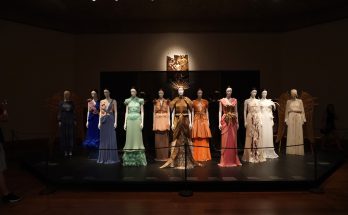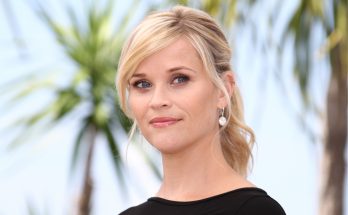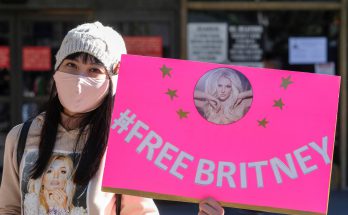There I was, fist full of broccoli florets, with pasta on the boil, my two tween daughters safely in their rooms pretending to do homework. I wasn’t planning on crying that evening. I’d had a full day of meetings and deadlines, and had just managed to sit down and pay all the bills before starting dinner for my family.
I am a full-on, five-star grownup. I have been for years.
I certainly don’t need a former television personality to validate my life, my choices, my hardships.
And so, when Steve Burns started auto-playing on my Facebook feed, I first thought: huh, this guy looks so familiar. He’s dressed like…Steve. I turned the sound on. It was Steve. Twenty five years after he first appeared on old, boxy television screens in low definition, he was suddenly back, and he wasn’t ignoring the time passed.
He was honoring it. He was honoring me? He, at the very least, came with a sincere and authentic explanation for his sudden departure from our beloved Blue’s Clues, and what’s more, he made it about us—about all of us. Just like he always had.
He starts with his signature, children’s television pauses—and they work. There we all were, as adults, if not talking back to the screen, answering in our head.
“Hi, you got a second?” Pause. And we, in our heads, say ‘yes, hi Steve!’
Then he answers our answer. “Okay.” A dialog in a screen. We know this trick, and, for this character, we play along with love and with a need we didn’t know we had.
He drags us through the pain of loss in a mild way, because, let’s face it, Steve going off to college was not a cardinal sin. It was understandable, and more understandable the older we got. The genius here is not in the recap of freaking out over the mail and talking to Mr. Salt. The genius here is that this one minor loss is a substitute for any loss we have had over the past two decades. And, honestly, there has been a lot of loss. Life has been really hard.
When we talk about the hardships, some call us weak. So we’ve plodded along, nursing our resentments, and, every once in a while, sharing a hot take or meme on literally how much we have suffered from 2000 to now.
9/11, the housing and subsequent market crash, losing jobs, homes, families, Hurricane Katrina, Hurricane Maria, Michael, Matthew, Irma, take your pick, more school shootings than we can count, white supremacy rallies, the Amazon is on fire, oh wait, the pandemic forces us all to stay home, wear masks and pray we don’t get sick. More furloughs. Things have been rough. And those are just the highlights.
Steve leaving us to go to college isn’t any of those things, but the small way we felt then mirrors the way we have felt about so much other loss, and our brains substitute this explanation, this genuine recognition of what happened, onto some of those other things. And we feel good.
And he doesn’t apologize for it. Life doesn’t apologize for being life. But he acknowledges it. And he includes us, in this particularly brilliant transition.
“I realize that was kind of abrupt. I just kinda got up and went to college. And that was really challenging by the way, but great because I got to use my mind and take a step at a time, and now I literally am doing many of the things that I wanted to do. And then, look at you, and look at all you have done and all you have accomplished in all that time, and it’s just…it’s just so amazing, right? I mean, we started out with clues, and now it’s what? Student loans, and jobs and families.”
Steve takes the narrative from himself and what he fictionally accomplished, and turns it back to us, and what we really did accomplish, and he iterates the hardships and consequences of those accomplishments in one fell swoop. Suddenly, we’re like, yeah, you know what, we have done a lot. Cool.
“And some of it has been kind of hard, you know? Pause. I know you know.”
This is where I lost it. He knows we know. This all happened, and it has been kind of hard. That’s literally all we’ve been wanting to hear from society for a long time. Kind of like when you are grieving and you just want someone there to acknowledge that, hey, this really sucks. And nothing can be done, but you are seen. We are seen by Steve. We always have been.
We could have left it there, but no. Our generation is full of helpers, and we, as a unit, helped Steve write down clues in his handy-dandy notebook many a time. Which, again, stands in for all the times we helped our friends, neighbors, families, communities, complete strangers…often without acknowledgement at all.
So, when, Steve—hero—tells us that our help back then made a difference to him, that it is still making a difference to him, we are empowered. It encompasses all the silent small sacrifices we have made over the years, and it validates them. It validates us. We are important. We are part of people’s lives. We make a difference.
Steve says so.
And then, as if this could get any more affirming, he tells us we look great, and our routines are working for us, and we feel it. This two-minute video, produced to market and brand Nick Jr. made us feel good about ourselves—our past selves and our present selves—and it managed to give us some weird sense of hope for our future selves, even though we know the road will get harder still.
“I guess I just wanted to say that after all these years, I never forgot you…ever. And I’m super glad we’re still friends. Thanks for listening.”
We’re glad we’re still friends, too, Steve. So, so glad.



